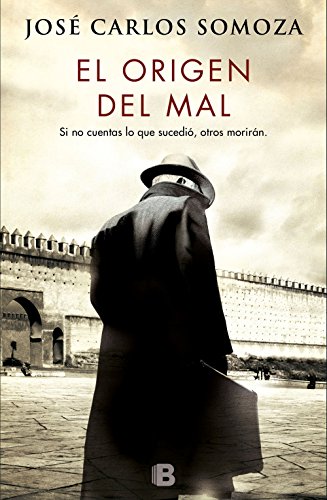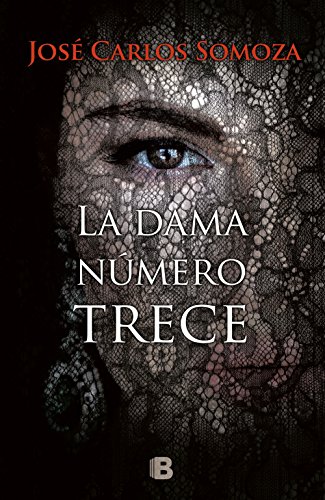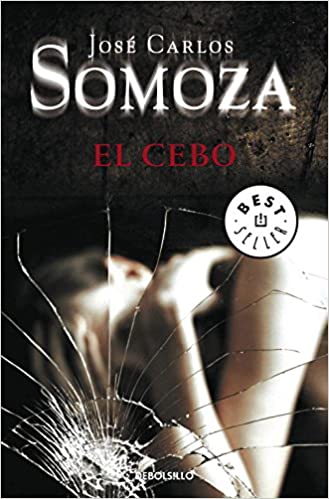A doctor who exploits his creative vein in literature, as is the case with Jose Carlos Somoza, always ensures a point of greater depth, a dissection of characters and situations. If, in addition, creative efforts are turned into more or less obscure genres between mystery and noir, the combination reaches undeniable limits of tension. The best example is the inexhaustible Robin cook and his medical thrillers.
Except that Somoza opens the range to many other topics. In fact, his specialty in psychiatry adds that weight of the perfect connoisseur of each psyche to apply to the characters in question. As a good psychiatrist, (let them tell him if not Freud) sex and the whole construct of the erotic, the fetishist, the filias and other manifestations of the most carnal desire, ended up initially leading to a superb erotic novel that currently overshadows Gray himself (pun intended). It was 1996 when Somoza won the Vertical Smile award, now forgotten but very interesting at the time.
However, from the beginning, the author's style already predicted all that potential that would end up spreading in many new novels in which the most fascinating thriller predominates, the one that is born from the characters themselves, from the subjectivity of a world that hides between chiaroscuro Unexpected, disturbing truths.
Thus, reading Somoza is always enjoying Before the trompe l'oeil presented as a false wall to be demolished by its characters to end up facing a thousand and one enigmas. Essential for restless readers, hungry for maximum voltage tension.
Top 3 recommended books by José Carlos Somoza
The origin of evil
The vicissitudes of a Spanish spy center a point of psychological tension that pivots between the reality of what could have happened and fiction. His movements in the shadows of the regime serve as a gloomy foothold for the current reality in which a famous writer who is handed a manuscript moves.
Everything that was about Ángel Carvajal, Falangist soldier and spy, or at least everything he wanted to tell, was testified in that book. Perhaps the writer should not have accepted the proposal. When he decided to read the book he learned truths that perhaps he did not want to know and that placed him in the middle of a whirlwind of hidden realities and secrets with dark consequences to this day.
A suggestive story that links the world of espionage in the mid-twentieth century with the sustenance of political and social news. All linked by means of a Machiavellian book, of a testimony that seemed to be looking for the right person to be read.
Official synopsis: José Carlos Somoza returns to the genre of thriller his greatest hits with a true story of a Spanish spy in North Africa in the 50s.
A well-known writer receives a mysterious manuscript from a bookseller friend. There are more than two hundred pages, typewritten and dated 1957. The order is very precise: it must be read in less than 24 hours.
Intrigued, the novelist begins to read and comes across a story of secrets and betrayals told by Ángel Carvajal, a Spanish Falange military man who acted as a spy in North Africa.
Lady number 13
Fear, as an argument for the fantastic, offers a vast terrain by which to surprise the reader, a space where you can overwhelm him at your whim and make him feel those chills that uncertainty causes.
If the story is also on the account of José Carlos Somoza, you can be sure that this scenery will make you participate as if you were right there, as if your peaceful reading space could begin to submit to the dictates of the fantastic ...
To such an extent it is so, that this book lady number thirteen you already have someone to take you to the movies. Jaume Balagueró announced that he will bring this story to the big screen. We will wait for news about it while the literary world recovers this book as a tasty advance, for that of: "the book is better ..., or the movie is just as I imagined it ..."
The point is that we are faced with a disturbing story, where dreams are again that connection with the unknown, with terror and mystery, a combination that always triumphs and even more so in this new approach.
Salomón Rulfo is not having a good time, life has defeated him in one of those tragic scenes that he mercilessly improvises. Perhaps that is why, in the midst of that weakness, that light sleep, Solomon begins to have a repetitive nightmare about death, a gloomy house ...
He knows that it must mean something. His nightmare is the representation of his dementia or something that claims him from another plane ...
After his nightmare, chance awaits him, that moment that finally ties the dots. And when everything takes on signs of certainty, restlessness and macabre curiosity push Solomon towards the ultimate truth.
It often happens that the ultimate truths are never good news when they are announced from dark dreams. Solomon's path, like a Dante through the circles of hell, may finally lead him to madness, or to a bright and beautiful lucidity, which can be the same depending on how you look at it ...
The bait
It is always dangerous to offer yourself as bait when hunting down the criminal. Diana Blanco is a very confident woman.
The police have trusted her on more than one occasion for her exceptional handling of that emotional intelligence that ends up locking the murderer in the trap.
Somoza's knowledge of the labyrinths of the mind around the most basic drives: desire and death, give this novel a point of almost scientific significance.
But beyond a possible informative interest buried under the plot, the point is that everything happens fast-paced. Because Diana is ready to serve once again to hunt down the bad guy. He is known as the Spectator and he is not new to killing.
With literary evocations of Shakespeare himself, the hunt takes on a strange aspect, like symbols in which Diana herself seems to be getting lost, especially when the Spectator finally avoids her and goes directly to where his bait hurts the most: his sister.
A story among the shadows of evil, when they end up closing in, even on those who believe they are capable of facing everything. Without knowing that, in the same way that everyone has a price, we all also have a weak point.



